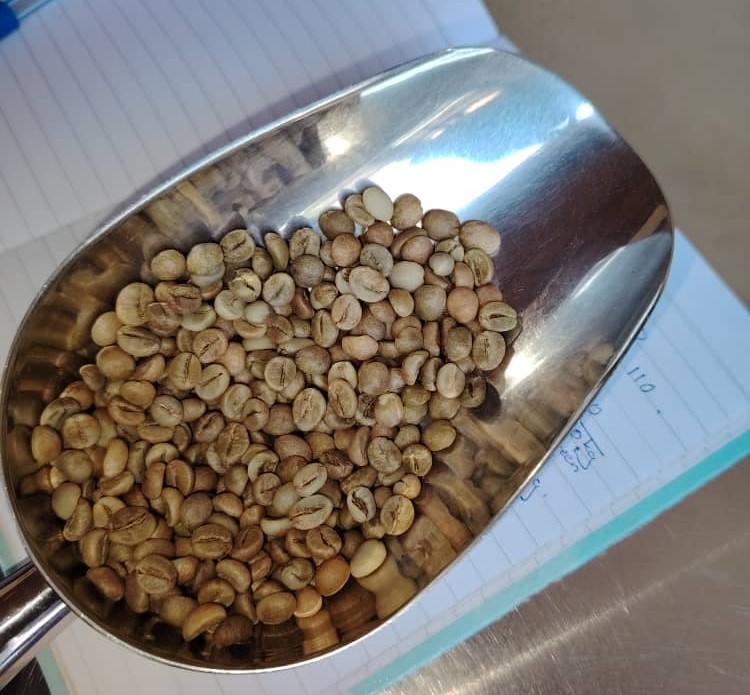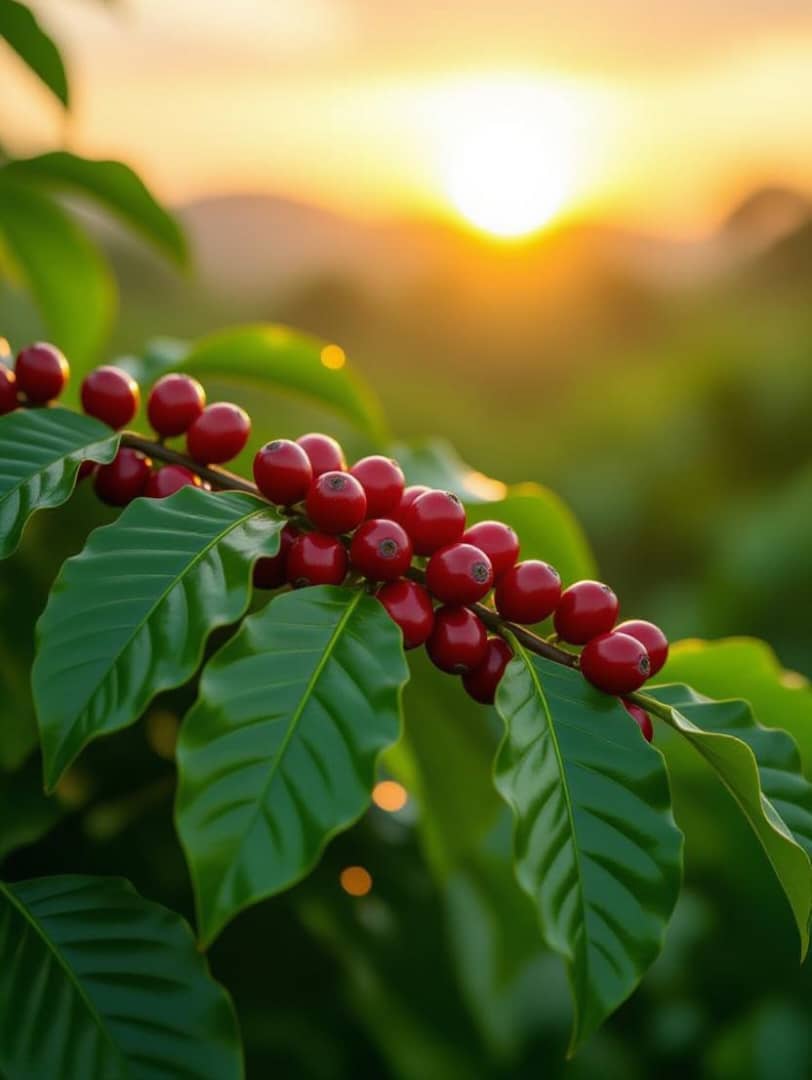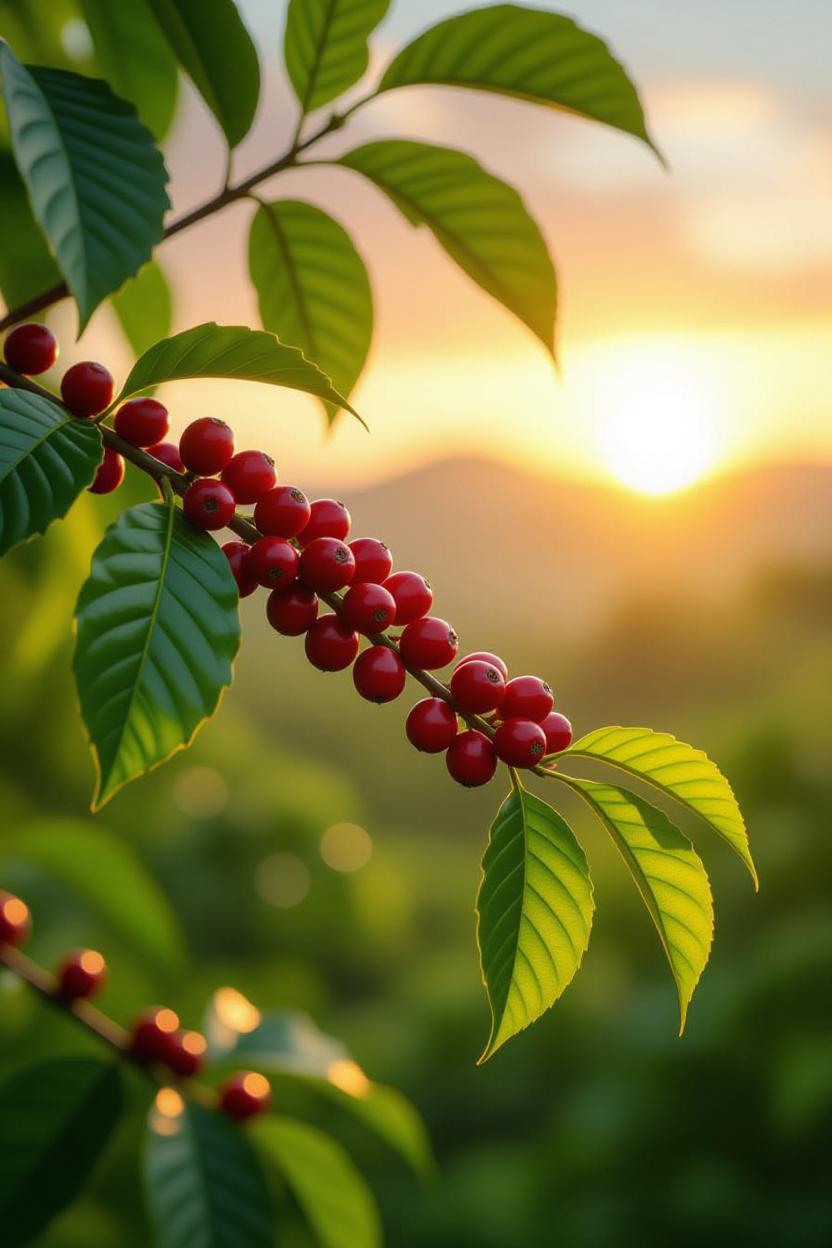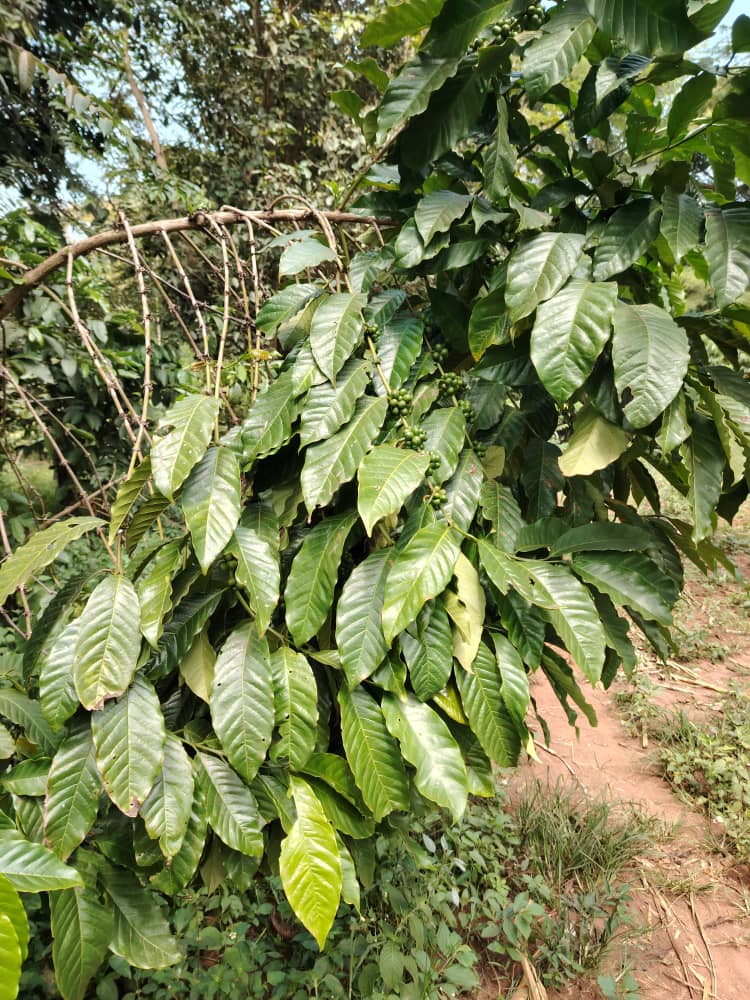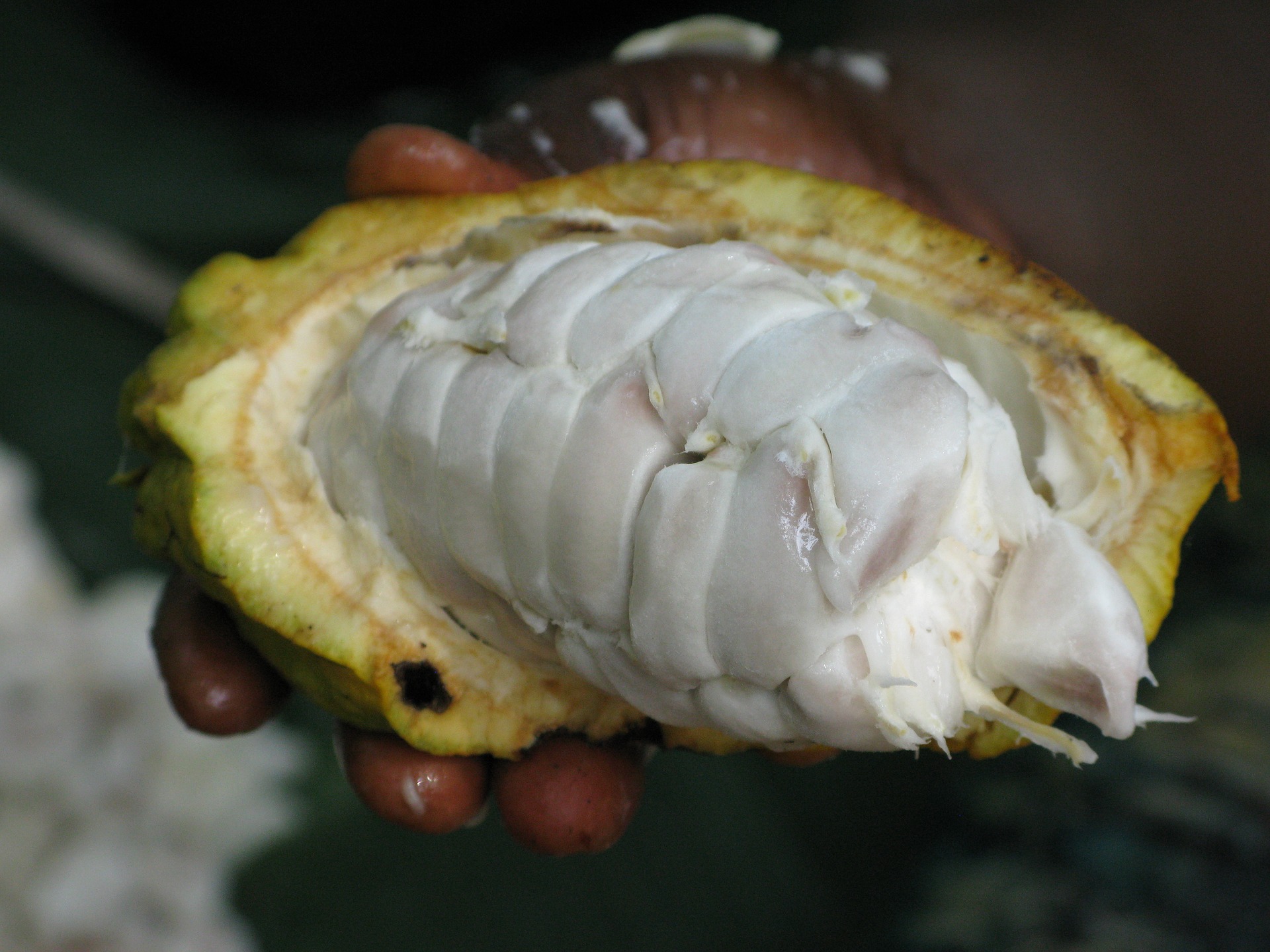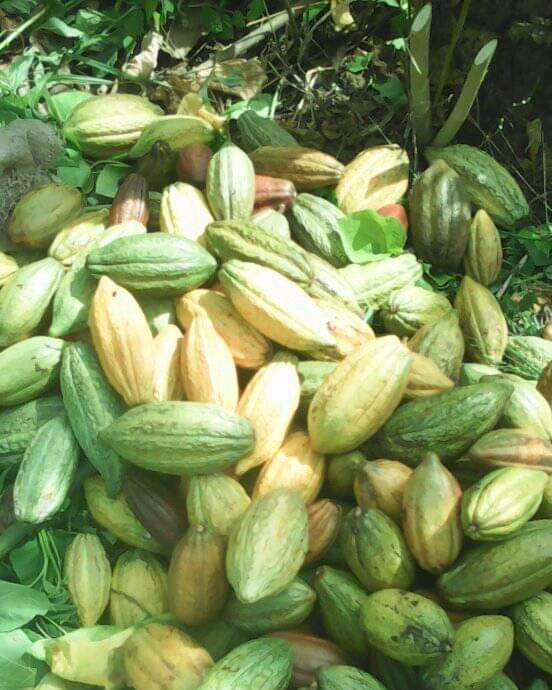Washed
vs. Natural (Sun-Dried) Arabica Coffee from Uganda: Key Differences, Processing
Methods, and Flavour Profiles
If you're a coffee enthusiast, roaster, or buyer exploring Ugandan Arabica, you've likely heard terms like "washed" and "sun-dried" thrown around. But what do they really mean, especially in the context of Uganda's vibrant coffee scene? In this comprehensive guide, we'll break down the differences between washed Arabica coffee and natural (often called sun-dried) Arabica coffee from Uganda. We'll cover processing methods, flavour profiles, quality impacts, and why these matter for your cup of joe.
Uganda is Africa's second-largest coffee producer, with Arabica making up about 20% of its output, primarily from high-altitude regions like Mount Elgon (Bugisu) and the Rwenzori Mountains. These beans are prized for their bright acidity, floral notes, and chocolate undertones. Whether you're sourcing for your business or just curious, understanding these processing methods can help you appreciate and choose the best Ugandan Arabica.
Click here to inquire about buying premium arabica coffee beans, both green and roasted, from Uganda
What Is Washed Arabica Coffee?
Washed processing, also known as wet processing, is the most common method for high-quality Arabica in Uganda, especially in regions like Mount Elgon, where consistent rainfall supports the water-intensive steps.
How Washed Arabica Coffee Processing Works
- Harvesting: Ripe coffee cherries are hand-picked.
- Pulping: The outer skin is mechanically removed, leaving the bean encased in sticky mucilage.
- Fermentation: Beans are soaked in water tanks for 12-48 hours to break down the mucilage through natural fermentation.
- Washing: Clean water rinses off the remaining mucilage, resulting in "parchment coffee" (beans still in their protective shell).
- Drying: Beans are spread on raised beds or patios and sun-dried for 7-15 days until moisture reaches 10-12%.
- Hulling and Sorting: The parchment is removed, and beans are graded for export.
In Uganda, this method is favoured for specialty-grade Arabica (often called "wugars" locally) due to the country's access to water sources in highland areas. According to the Uganda Coffee Development Authority (UCDA), wet processing is standard for Arabica grown above 1,500 meters, like in the Bugisu region.
Flavour Profile of Washed Ugandan
Arabica
Washed coffees shine with clarity and complexity:
- Acidity: Bright and lively, often citrusy (lemon, orange) or malic (green apple).
- Body: Medium to light, with a clean mouthfeel.
- Notes: Floral (jasmine), chocolate, nutty, or subtle fruit (berry, stone fruit).
- Overall: Subtle and balanced, allowing the bean's origin characteristics to stand out without interference from the fruit.
These flavours make washed Ugandan Arabica ideal for filter brews or espresso, where precision is key.
Click here to inquire about buying premium arabica coffee beans, both green and roasted, from Uganda
What Is Natural (Sun-Dried)
Arabica Coffee?
Natural processing, commonly referred to as sun-dried or dry processing, is gaining popularity in Uganda's specialty coffee sector. It's less water-dependent, making it suitable for drier areas or experimental lots.
How Natural Processing Works
- Harvesting: Only the ripest cherries are selected.
- Sorting: Cherries are floated in water to remove defects.
- Drying: Whole cherries are spread on African raised beds or patios and sun-dried for 2-4 weeks, turned regularly to prevent mold. The fruit ferments naturally as it dries.
- Hulling: Once dry (moisture at 10-12%), the shriveled fruit is mechanically removed.
- Sorting: Beans are graded, often resulting in "drugars" in Ugandan terminology.
In Uganda, natural processing is used for Arabica from regions like Elgon and Kigezi, where it produces complex, fruit-forward beans. UCDA highlights that naturally processed Arabica from these areas was praised at the 2024 World of Coffee Expo for its unique profiles. This method is eco-friendly in water-scarce zones but requires careful monitoring to avoid over-fermentation.
Flavour Profile of Natural Ugandan Arabica
Natural coffees are bold and adventurous:
- Acidity: Lower, more muted—think winey or fermented fruit.
- Body: Full and syrupy, with a heavier mouthfeel.
- Notes: Intense fruit (blueberry, strawberry, tropical), boozy (wine, rum), or sweet (honey, caramel).
- Overall: Funky and vibrant, with the drying process adding layers of sweetness from the fruit pulp.
These are perfect for those who love fruity cold brews or natural espresso shots, but they can vary more due to weather influences.
Click here to inquire about buying premium arabica coffee beans, both green and roasted, from Uganda
Why Uganda's Arabica Coffee Stands Out
Uganda's volcanic soils, high elevations (1,200-2,300 m), and equatorial climate create ideal conditions for Arabica. Varieties like SL14 and SL28 deliver robust flavours. The UCDA promotes sustainable practices, with exports hitting 6 million bags in 2024. Whether washed or natural, Ugandan beans often carry notes of dark chocolate and citrus, setting them apart from Ethiopian or Colombian counterparts.
Conclusion: Source Premium Ugandan Arabica Coffee from Flawless
Consultants Ltd
For coffee lovers, roasters, and cafes in the USA, Europe, Asia, and Australia, Uganda’s Arabica is your gateway to extraordinary flavours. Choose washed for crisp, citrusy elegance or natural (sun-dried) for bold, fruity intensity—both crafted from the volcanic slopes of Mount Elgon and Rwenzori. At Flawless Consults UG, we deliver UCDA-certified, specialty-grade beans to elevate your brews. Join our global community of coffee enthusiasts and source directly from Uganda’s finest farms. Contact us today to import the world’s best Arabica and delight your customers!
Click here to inquire about buying premium arabica coffee beans, both green and roasted, from Uganda
FAQs: Common Questions About
Ugandan Arabica Processing
Is sun-dried the same as naturally processed Arabica Coffee?
Yes, "sun-dried" usually means natural processing, where cherries dry in the sun intact. It's distinct from washed, where beans are dried after fruit removal.
Which is better: washed or natural Ugandan Arabica?
It depends on preference—washed for clean, bright cups; natural for bold, fruity ones. Both are excellent; try blends for balance.
How does processing affect Ugandan coffee's price?
Washed often fetches premiums for consistency, but high-quality naturals can command more in niche markets like the U.S. or Europe.
Can I buy Ugandan Arabica online?
Absolutely! Yes, you can buy premium Ugandan Arabica coffee directly from us. You can contact us today through our website and place your order!"
Does climate change impact these methods in Uganda?
Yes—erratic rains can challenge washed processing, pushing more toward natural methods for water conservation.
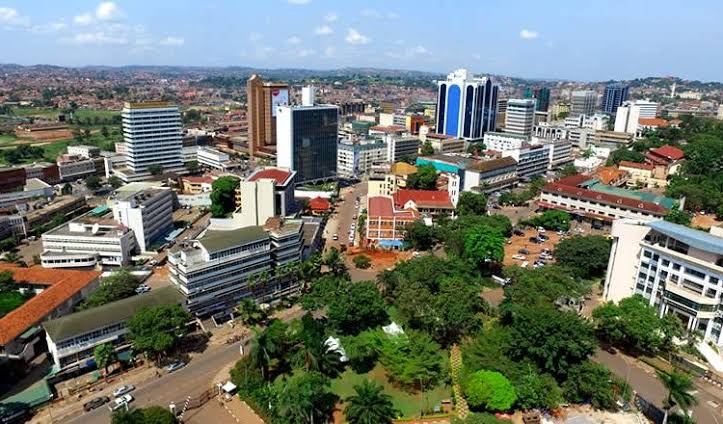 Aerial View Of Kampala City
Aerial View Of Kampala City Buy A 140K Grader In Uganda
Buy A 140K Grader In UgandaFor inquiries or Orders:
Contact Us On:-
E-mail: Info@flawlessconsultsug.org
Or
Call/Whatsapp Us on: +256-772 238575
